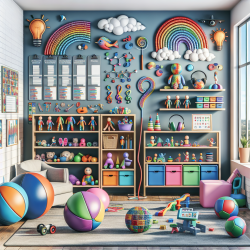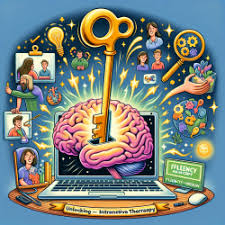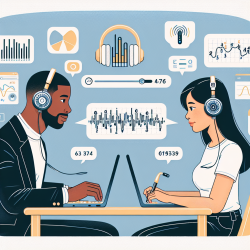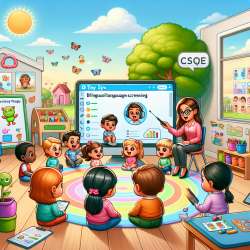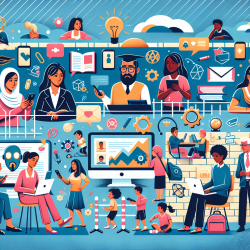Introduction
The COVID-19 pandemic has dramatically altered the landscape of early childhood education, particularly in the realm of social-emotional development. A recent study titled “A Piece of Normal Life When Everything Else is Changed” Remote Early Childhood Music Classes and Toddler Socialization explores how remote music classes can serve as a vital tool for fostering socialization and emotional growth in toddlers during these challenging times. This blog post will delve into the key findings of this research and offer practical insights for practitioners looking to enhance their online therapy services.
The Importance of Social-Emotional Learning (SEL)
Social-emotional learning is crucial in early childhood, as it lays the foundation for lifelong competencies such as empathy, self-management, and positive relationship skills. According to the CASEL framework, SEL encompasses five core competencies: self-awareness, self-management, social awareness, relationship skills, and responsible decision-making. The pandemic has heightened concerns about the socio-emotional development of children, making SEL more important than ever.
Remote Music Classes: A New Frontier
The transition to remote learning has been challenging for early childhood educators, particularly in music education. However, this study highlights the potential of remote music classes to support social-emotional development in toddlers. By incorporating explicit SEL instruction into music classes, educators can help children develop essential social skills, even in a virtual environment.
Key Findings from the Study
- Pandemic and Family Life: Remote music classes provided a sense of normalcy and routine for families during the pandemic. Parents appreciated the consistency these classes offered in an otherwise unpredictable time.
- Child Experience: Children displayed varying levels of engagement in remote music classes. Emotional connections with instructors and peers were crucial for a positive experience.
- Parental Role: Parents played a complex role in facilitating remote classes, acting as both participants and technology troubleshooters. Their involvement was key to the success of the classes.
- Social-Emotional Activities: The inclusion of SEL activities in music classes was met with mixed reactions. While some parents found them beneficial, others struggled to engage due to pandemic-related stress.
Implications for Practitioners
For practitioners providing online therapy services, this study offers valuable insights into enhancing remote learning experiences:
- Adaptability: Tailor your programs to meet the specific needs of your community. Flexibility is key in addressing diverse family circumstances.
- Parental Involvement: Encourage parents to actively participate in classes and provide them with resources to continue activities at home.
- Communication: Maintain open lines of communication with families to understand their needs and preferences. This will help in designing more effective SEL activities.
Conclusion
Remote music classes offer a promising avenue for supporting social-emotional development in toddlers, even amidst the challenges posed by the pandemic. By incorporating SEL into these classes and fostering strong connections between children, parents, and educators, we can create a harmonious path to socialization and emotional growth. For more detailed insights, practitioners are encouraged to explore the original research paper: “A Piece of Normal Life When Everything Else is Changed” Remote Early Childhood Music Classes and Toddler Socialization.



